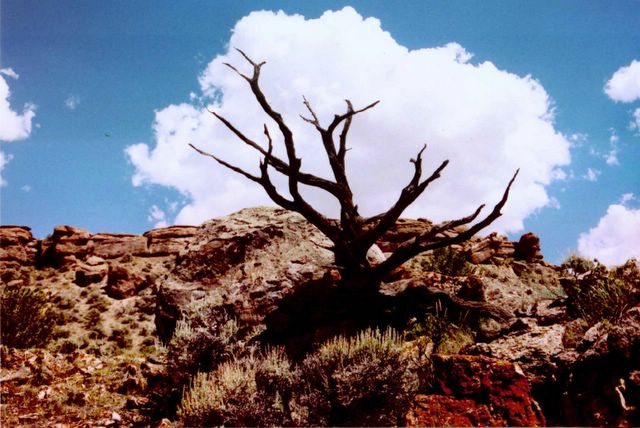My dad gave me a new composter for Christmas. I’ve been looking at everything with new eyes: everything is potentially something I can throw into the composter.
The tops of strawberries, eggshells, even the dust from my vacuum cleaner. And yes, I’ve checked. Ash can be composted as well.
I’m getting impatient with my compost pile. Unfortunately, a sweetgum ball blew out my yard vacuum mulcher, so I can’t chop up my leaves like I could before I had a composter. See, the smaller the pieces, the faster that stuff can turn into good compost.
But the thing is, once this stuff sits in there for a while, its going to make some great soil for Julianna’s Christmas tree we recently planted.
I’ve started thinking of Lent as a season of soul composting. You take all that junk that you just ignored and threw in the trash or down the garbage disposal before, and you use it. You see that there is value in reflecting on it. You put it in a special place, the soul composter, and you let it sit. I've always been impatient with "seeing results" from the "soul composter" of Lent, as I am with my leaf composter.
We begin Lent by taking a reminder of decay and sinfulness (the palm branches of last year's Palm Sunday--which I am tearing the leaves from and handing to the congregation and inviting them to write something they would like to see "burned away" during Lent.) and burning it down to its smallest form, then we mark our heads as a reminder that God can take all of this—all of this dirt and dust and rotting decay and He can make new life spring out of it.
But we must give it over, and in order to do that we must acknowledge that it exists within us. The ashy cross you will receive on your forehead is a visible reminder of this.
I’ve always been puzzled by the lectionary’s prescription for Ash Wednesday in the Gospel Text. Doesn’t Jesus basically say, when you repent, don’t make it a big show so that everyone will see? And here we are, marking ashes on our foreheads.
Then I began noticing what happened when I’d go home and get the kids in the bath, and see my reflection in the mirror. I’d pause there, and the truth of those ashes would ring in my ears: I am made of dust, and to dust I shall return. There’s something I was created for that would be missing in my reflection if it had not been given to me as a gift.
It reminds me of a story I heard in a children's sermon about his son playing with legos, and being frustrated because his little airplane that he’d made wouldn’t work right. The cockpit wouldn’t raise up.
His son stormed out of the room, and set it down on the dresser. The dad took a look at it, and saw that there was one wrong piece that had been turned the wrong way, and that was keeping the thing from working right. But, the dad had to take it all apart to get to that piece.
The son walked in right as dad had finished taking the whole thing apart, and he was furious! Dad had ruined the whole thing!
But then dad finally got through to the boy and showed him how the thing wasn’t working, and asked him to help put it back together again.
We are dust. We must acknowledge and see how we fall short, we must hold it up to God and ask God to put us back together again. This is the meaning of repentance. We will all experience death. We will all be taken apart. Our frustration and fears and anger about death must be met by the Father’s assurance that he intends to put us back together again.
So, let me suggest that these ashes are more about you seeing them in the mirror and letting them sink into your conciousness than they are about being an emblem for all to see. I wouldn’t wipe them off until you’ve had a chance to look at your reflection.
And those ashes are good news. "If anyone would come after me, he must deny himself and take up his cross and follow me. 25For whoever wants to save his life[a] will lose it, but whoever loses his life for me will find it. (Mt 16)
This is what Lent is about. It is about finding the compost materials. It is about taking apart the legos. Something will happen to all the junk we let go of and throw in the pile over these 40 days. They will become fertile soil for the seed of a promise that we will hear about on the day after Lent. The new life will spring out of decay. The resurrection springs out of a tomb. Our eternal life springs out our release of the mortal life.
Thanks be to God.











